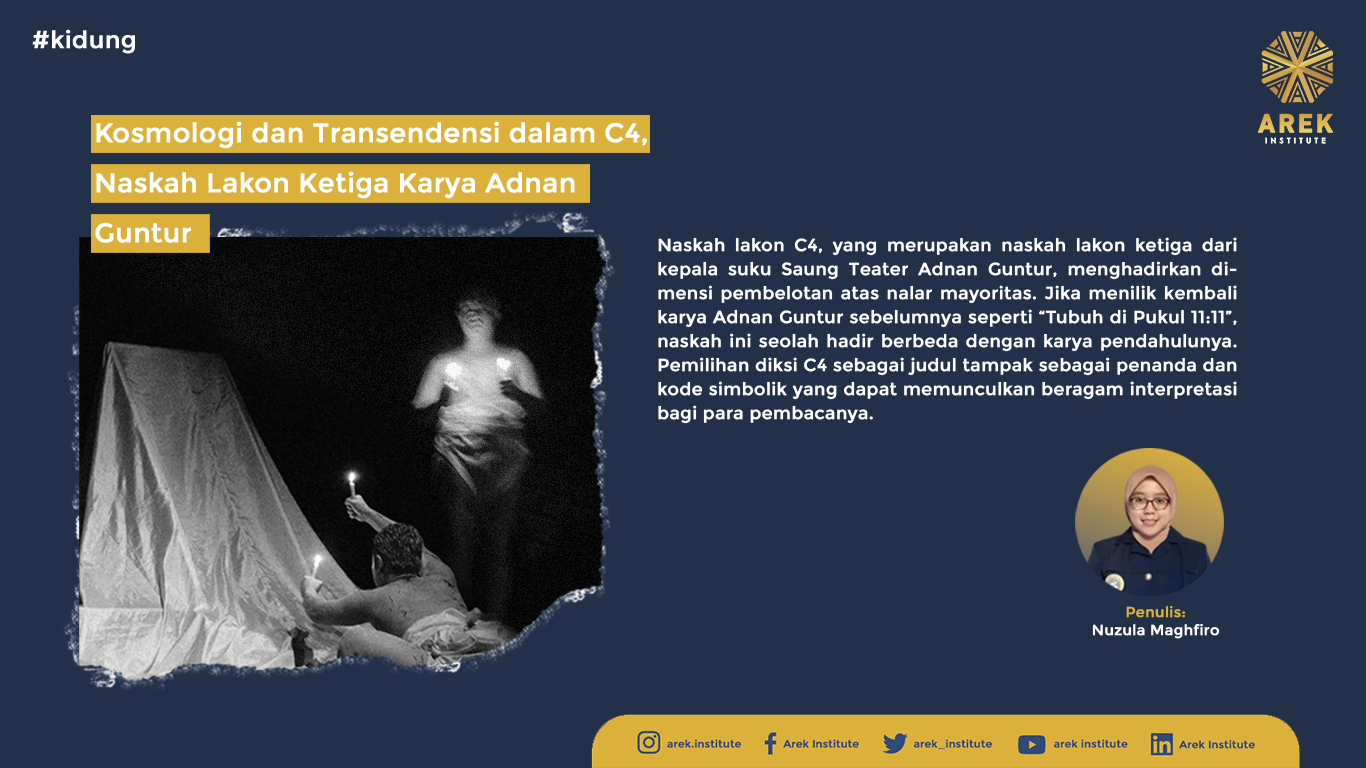
The Poetry from Surabaya’s Red-Light District

Humans always attach themselves to symbolic desires. They are no longer just confined to sexual desires or pleasures. Instead, it’s the drive for luxury, grandeur, or economic stability involving urban spatial planning. One such phenomenon can be observed through the anthropology of poetry titled “A Drop of Water in the Red-Light District” (2008). Moreover, this work is also part of the Javanese Literature Workshop development program.
As a work of poetry, it is written in Javanese. It also represents the group of sex workers because its poets come from the development program for this group. Therefore, this work contains collective memories and class consciousness of these workers. It simultaneously shows that their imagination holds a symbolic desire for a certain completeness.
Further, the poetry work titled “Terminal” is particularly interesting for deeper analysis. As its title suggests, this work harbors a symbolic desire for departure. There’s a desire from the Poet to present their memory of that space. It is interpreted as an initial gateway to a new world. The work reads as follows:
l Akeh tenan wong kang teka-lunga
Akeh wong Ian pawongan kang sliweran
Angel anggonkujalukpitulungan
Amarga wedi yen kapusan
On one hand, the city harbors an imagination of progress and novelty. On the other hand, the poet harbors a fear of urban life. It is seen as a very gray and new world of life. It’s as if entering an unknown jungle. The presence of the city actually stores anxiety memories for its writer.
Unlike the poetry “Terminal”, the poetry titled “Will Never Forget” instead harbors a desire for longing towards the other, namely the figure of a husband. This work harbors an imagination of the subject’s completeness if they could meet or live together with their husband. The fragment of the poem reads as follows:
Gusti
Tulungen awakku iki
Krana aku saiki lagi susah Ian bingung
Amarga ditinggal bojoku megawe adoh banget
Saiki aku dhewekan
Ana papan kene
Aku mung bisa nenuwun
Karo sing Kuwasa
Muga-muga bojoku
Ana papan penggawean
Slamet
Ora ana alangan apa-apa
Aku dhewe nek kene kerja
Aku pengen urip bebarengan karo bojoku
Kaya apa bae
Aku bakal tetep ngenteni bojoku bali
The Poet seems haunted by the anxiety over her husband’s job far from her. She experiences a condition of alienation because she does not achieve completeness in herself. Economic issues underlie the alienation problem of this wife subject. However, that completeness is not complemented by the departure of the other figure. Moreover, her husband has to venture far to fulfill life’s necessities. As a result, she feels a desire to reach her completeness as a subject living together with the other.
The other subject, in this collection of works, is not limited to the wife-husband relationship but also includes the relationship between mother and child. The poetry titled “Love” presents a dimension of alienation for the poet in this work. The starting point of her problem arises because a mother has to migrate far from her village to support her family (the other), including her child. The fragment of the poem reads as follows:
Aku tresna marang anakku
Sampek teka jeroning atiku
Sapa bae ora bakal bisa misahake aku utawa anakku
Aku tresna sampek tekan pati
This work shows the symbolic desire of the mother, which is her child. She goes far from her child to earn a living. Because of that issue, as a subject, the mother does not feel completeness. She expresses her sadness through the poem. She shows her love and feelings for her child, and it also shows that her love extends to her place of origin.
Several fragments of the poem show a view towards urban life. There is a memory about departure. There is also an imagination of alienation. Both fill the minds of their writers in this poetry work. They show an imagination of alienation and also experience failure in completeness regarding their symbolic desire towards the other.
Besides, the emergence of conflicts in several poems arises due to materialistic drives. They have to fulfill their lives. For that need, they try to find a better living space. This, in fact, presents its own trauma and memory for them. They seem to be facing a moment of collapse on themselves.
In short, symbolic desire, in this work, is recorded through the minds of its poets. They all are subjects-the other trying to achieve completeness for themselves, but they instead experience an experience of alienation due to the failure to achieve life completeness.








